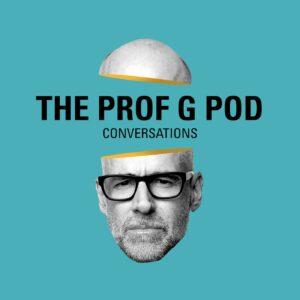Intro
In this episode of “Philosophize This!”, host Stephen West explores the philosophical ideas of Simone Weil, particularly her views on willpower, attention, and the concept of God. Weil believed that self-improvement requires more than just willpower and discipline, and that attention is a powerful tool for personal transformation. She also proposed a unique understanding of God as a universal truth that transcends culture and ideology. Join us as we delve into Weil’s fascinating philosophy.
Main Takeaways
Self-Improvement Beyond Willpower
- Simone Weil believed that willpower and discipline are not the only skills needed for self-improvement.
- One way to change habits is through willpower and discipline, but another way is to try to see the activity through a new set of eyes.
- Simone Weil did not see willpower and attention as mutually exclusive, but rather as tools to be used in different situations.
- She believed that attention is more important than willpower in curing our faults.
- Willpower only controls a few movements of a few muscles, while attention can transform the whole person.
The Concept of God
- Simone Weil proposed a non-material order, symmetry, and harmony in the universe that can’t be fully understood by science.
- She referred to this order as God, but it’s not the same as the God in religious fundamentalism.
- This vision of God is centered around moral accountability and the obligation we have to the universal truth that transcends culture and ideology.
- We are vessels of God, and the only way God exists in the world of Simone Weil is if we enact this universal good.
- Accessing universal messages requires an open mind and transcending closed systems of thinking.
Becoming a Vessel for Good
- Philosophy is necessary to prepare the mind for a religious and morally consistent life, but action is required to become a vessel for goodness.
- Being a vessel for good requires participation and taking action in the world.
- Work could play a role in our psychology that prayer used to serve for people, but people are alienated from how their work connects to others in a meaningful way.
- To become a better antenna for feeling connected to the universe, practice attention by orienting towards love of the beauty of the world, love of your neighbor, and love for religious ceremonies.
- The three types of experiences are actually just the same experience of recognizing an underlying implicit love of God.
Virtues and Ethical Decision-Making
- Lucidity is the only path to the virtues of moderation and courage.
- Moderation and courage are necessary to resist anything in the world politically without becoming a disgraceful frenzy.
- Refusing to join a collective way of thinking may not be the appropriate level of protest in certain situations.
- When choosing a lesser evil, never forget that you ultimately chose evil and need courage and moderation to make these choices.
- In order to make ethical decisions, it’s important to cultivate virtues such as courage and moderation.
Summary
Simone Weil’s Philosophy of Attention and Becoming Vessels of God
Simone Weil’s philosophy emphasizes the importance of attention and self-transcendence in achieving personal growth and becoming vessels of God. She believed that willpower and discipline are not enough for self-improvement and that attention is a transformative tool. Weil proposed a non-material order in the universe that she referred to as God, which is centered around moral accountability and the obligation to enact universal goodness. Becoming a vessel for good requires both philosophical preparation and active participation in the world. Weil also discussed the virtues of moderation and courage in making ethical decisions. By cultivating attention and embracing love for the beauty of the world, love for others, and religious ceremonies, individuals can strengthen their connection with the universe and access universal wisdom.
Conclusion
Simone Weil’s philosophy offers valuable insights into the nature of self-improvement, the concept of God, and the importance of virtues in ethical decision-making. By practicing attention and actively participating in the world, individuals can become vessels of goodness and establish a deeper connection with the universe. Weil’s ideas challenge conventional notions of willpower and invite us to explore the transformative power of attention and love.
